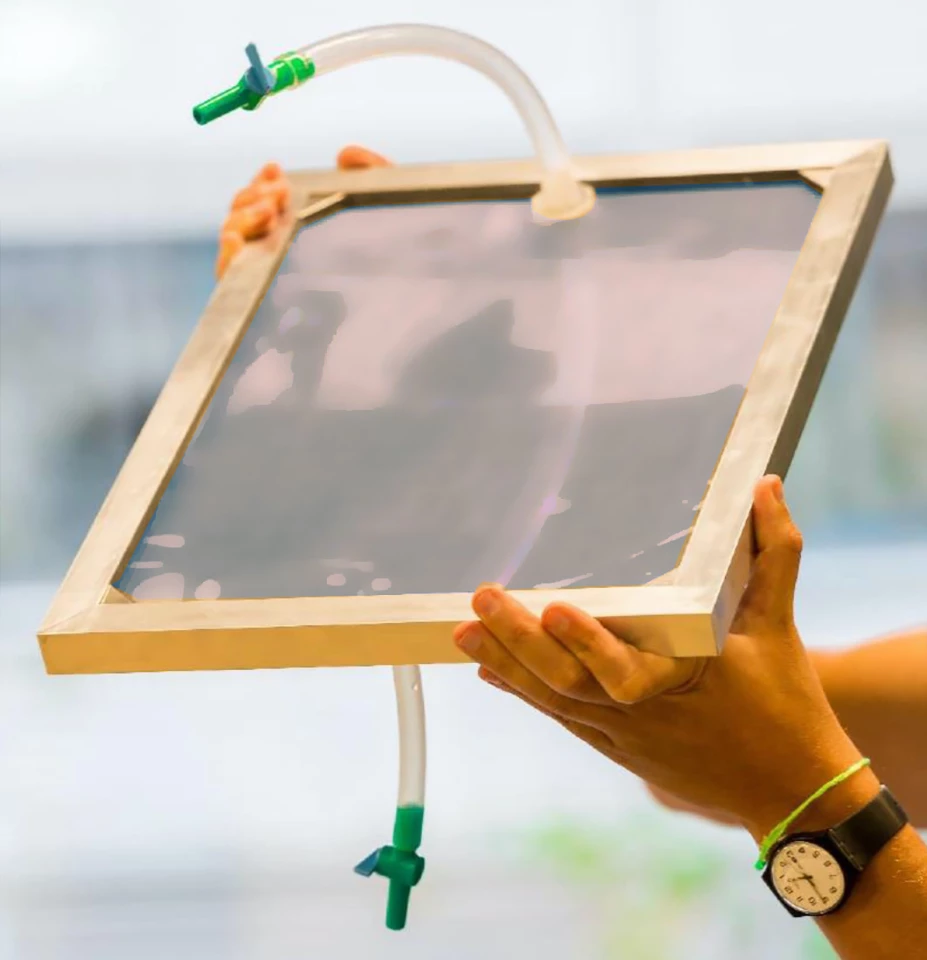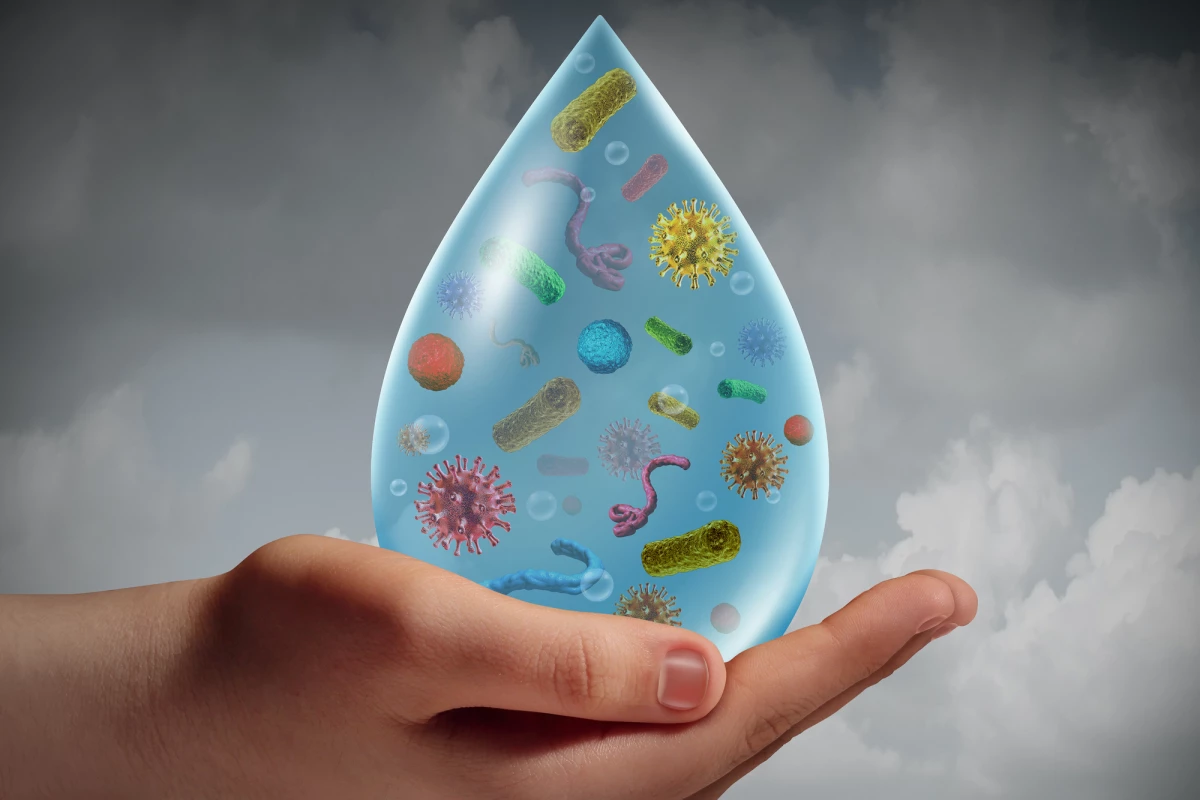There are many parts of the world in which fresh water may be plentiful, but it's also full of harmful microbes. An experimental new filter is able to purify such water for drinking, and it's powered solely by sunlight.
The flat-bodied prototype device was designed at Switzerland's EPFL research institute, by a team led by Prof. László Forró. Water enters via a tube in the top, flows through a multilayer composite material sandwiched between two sheets of glass, and exits through a tube in the bottom.
The composite material is made up of titanium dioxide nanowires interwoven with carbon nanotubes. When the filter is exposed to sunlight, the ultraviolet spectrum of that light causes the composite to produce a group of molecules known as reactive oxygen species (which include hydrogen peroxide, hydroxide and oxygen).

These molecules are highly effective at killing harmful bacteria and viruses – the filter has already been successfully tested on water containing E. coli bacteria, with results indicating that it should also have no problem eradicating other pathogens. In fact, it is believed that the technology may also prove effective at eliminating micro-pollutants such as pesticides and drug residues.
It should be noted that when activated by UV light, titanium dioxide nanowires on their own are capable of killing microbes. For that matter, even UV light alone can purify water, if the water is left sitting in the sunlight in a transparent container.
However, Prof. Forró told us that his team's filter is much more effective – this is due in part to the carbon nanotubes' ability to absorb heat from the sunlight, accelerating the purification process. The present small-scale model can treat 2 liters (0.5 gal) of water per day, although that figure would rise considerably if the technology were to be scaled up. Adding a small amount of gold nanoparticles to the composite may further boost its performance.
"In a close collaboration between chemists, physicists, and biologists, we have developed a very efficient water purification device, which does not need any energy source but sunlight," said Forró. "Our prototype can supply clean drinking water even at remote places."
A paper on the research was recently published in the journal Nature.
Source: EPFL via AlphaGalileo





